Invited Panel 1
Speech Title
Individual differences in TELL
Individual differences refer to “characteristics which make learners different from each other and which affect the way that they behave in the classroom and beyond” (Griffiths & Soruç, 2020). While some differences are biological such as gender, age and race, some are psychological such as motivation, autonomy, willingness to communicate, self-efficacy, strategy, emotion, belief and learning styles. In the context of technology-enhanced language learning (TELL), all of these differences interact with one another in complex ways to affect learning gains and classroom dynamics. Thus, this panel aims to explore the intersection of individual differences and TELL. The panelists will first delve into specific TELL tasks, including Virtual Reality (VR), Digital Storytelling, Audiovisual Dubbing, and Artificial Intelligence (AI), elucidating their applications and how they can enhance language learning. Second, the panelists will address the following questions: 1. What is the rationale behind how the selected technology influences individual differences? and 2. Besides those mentioned, what other individual differences would you like to explore using the same technology? Finally, the panel will discuss pedagogical implications derived from panelists’ research findings. These implications are expected to offer valuable insights for educators and practitioners seeking to effectively utilized TELL. By elucidating the relationship between technology, individual differences, and language learning outcomes, this panel contributes to the advancement of TELL research and practice.
Speaker 1
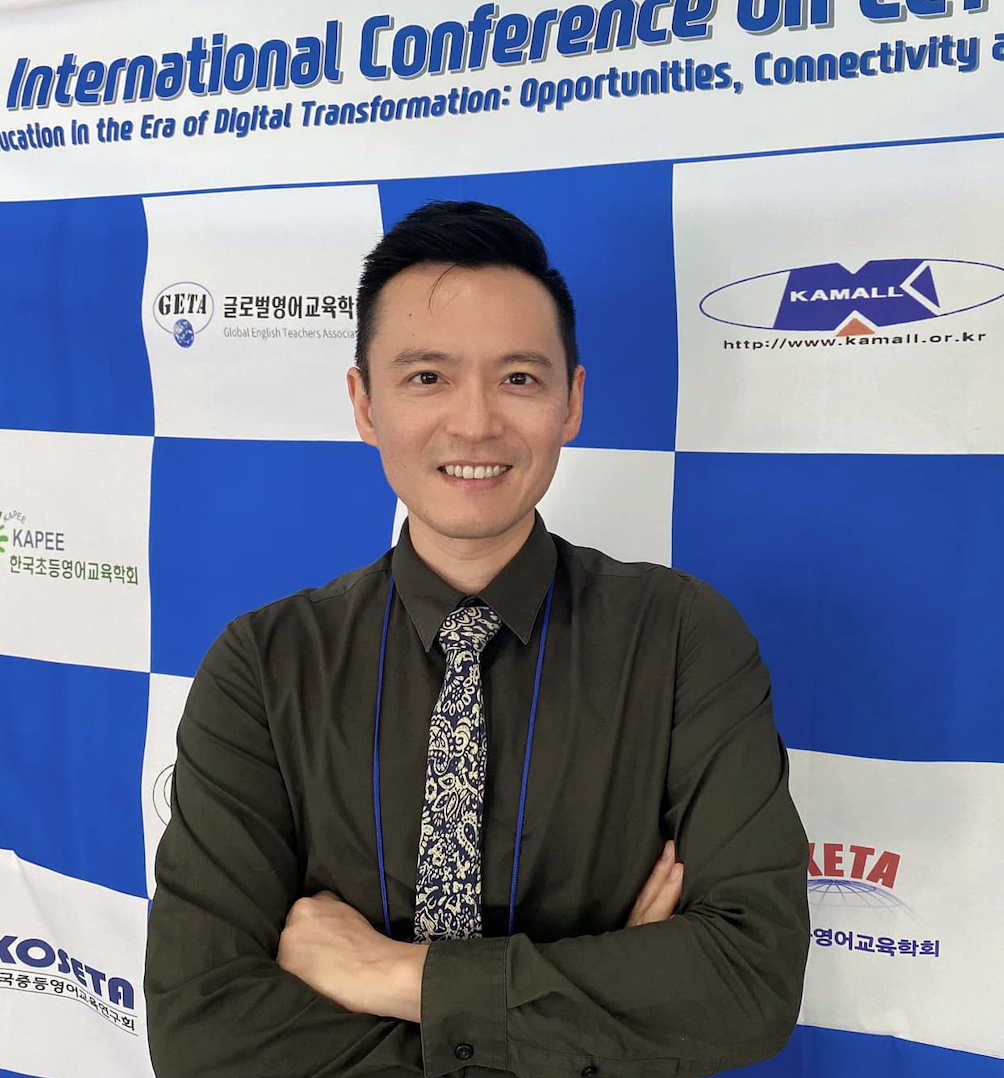
Shao-Ting Alan Hung
Professor of the Department of Applied Foreign Languages at National Taiwan University of Science and Technology, Taiwan
Shao-Ting Alan Hung is a Professor of the Department of Applied Foreign Languages at National Taiwan University of Science and Technology, Taiwan. He is serving as the Dean of College of Liberal Arts and Social Sciences, Director of Language Center and Executive Director of Office of Bilingual Education Initiatives. As a former Editor-in-Chief of Taiwan International ESP Journal, he is interested in technology-enhanced language learning, ESP pedagogy and research, language assessment and language teacher education. He has published articles in Computers and Education, Computer Assisted Language Learning, Interactive Learning Environments, Journal of Educational Computing Research, Journal of Research on Technology in Education and so on.
Speaker 2
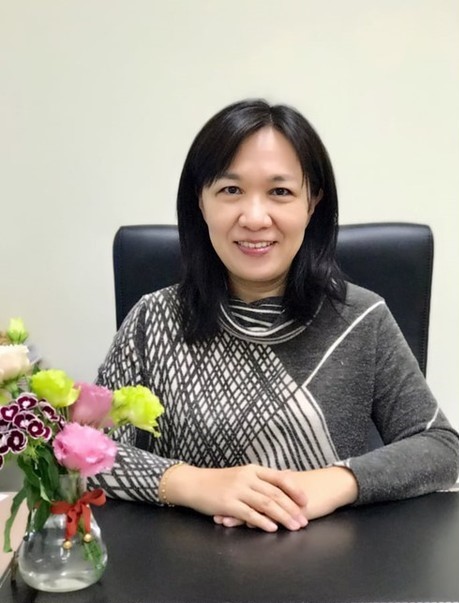
Mei-jung, Sebrina, Wang
Professor at National Kaohsiung University of Hospitality and Tourism, Taiwan
Mei-jung, Sebrina, Wang is Professor at National Kaohsiung University of Hospitality and Tourism, Taiwan. Her research interests focus on computer-assisted learning, English for specific purposes, content and language integrated learning, and tourism experiences. She established Asian Coffee Certificate (ACC) in 2017 and has crucial publications on coffee tourism.
Speaker 3
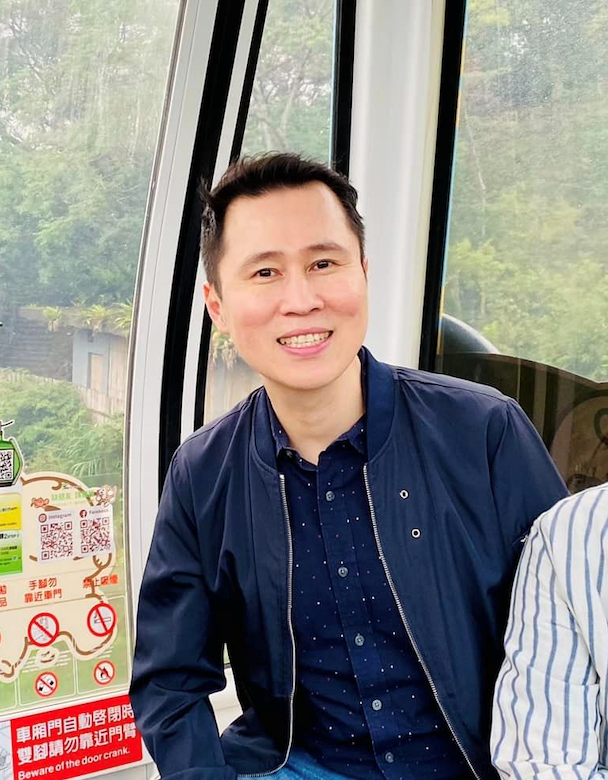
Heng-Tsung Danny Huang
Associate professor of Foreign Languages and Literature at National Taiwan University, Taiwan
Heng-Tsung Danny Huang currently works as an associate professor of Foreign Languages and Literatures at National Taiwan University. Additionally, he has been serving as the editor-in-chief for Language Education & Assessment , an international journal that adopts a dual focus to drive forward both language education and language assessment. His scholarly works appear in such journals as Language Testing , Language Assessment Quarterly , TESOL Quarterly , Learning and Individual Differences , System , Language Learning and Technology , and so forth.
Speaker 4
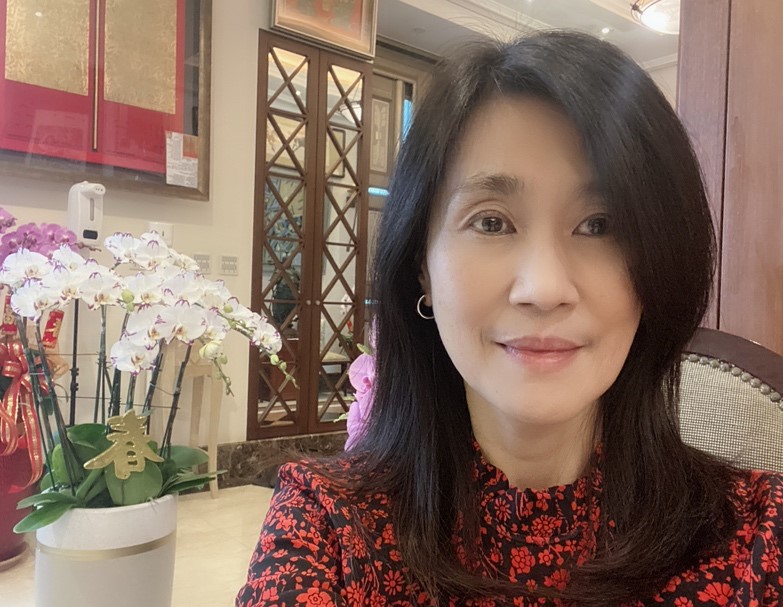
Min-Hsun Liao
Associate Professor of Foreign Languages and Literature at Tunghai University, Taiwan
Dr. Min-Hsun Liao has been teaching in the Department of Foreign Languages and Literature at Tunghai University for 20 years. Currently, she is committed to promoting international mobility and intercultural exchange. She believes that virtual exchange can prepare students for physical exchange. Her research interests include incorporating virtual exchange into teacher education and language development, using virtual reality to promote learner agency, and exploring the role of language in international student adaptation. Given the drastic differences between learners from year to year, she is constantly looking for ways to incorporate technology to create a learning community among her students.
Speaker 5
%20Chen.jpg)
Hsieh-Jun (Scott) Chen
Assistant Professor of the Graduate Institute of Children's English at National Changhua University of Education, Taiwan
Hsieh-Jun (Scott) Chen is an Assistant Professor of the Graduate Institute of Children’s English at National Changhua University of Education in Taiwan. His research interests include technology-enhanced language learning (AI, robot, VR, digital games, digital storytelling, metaverse, intercultural telecollaboration), innovative instruction (flipped learning, multimodal design, PBL), and differences among leaners based on affective factors (emotion, grit, demotivation, willingness to communicate, enjoyment, virtual presence).
Invited Panel 2
Speech Title
Navigating the Metaverse Frontier: Exploring the Intersection of AI, VR, AR, and More
In the dynamic realm of technology and computing, the progression of artificial intelligence (AI) and virtual reality (VR) brings forth an array of opportunities and intricate challenges for educators across various educational domains. Our panel, titled "Navigating the Metaverse Frontier: Exploring the Intersection of AI, VR, AR, and More," serves as a forum for scholarly discourse on the metaverse within language education. Through a comprehensive analysis of research and innovative practices presented by four panelists, encompassing pivotal topics such as intelligent virtual agents, immersive virtual realities (iVR), and ethical considerations inherent in AI and Gen AI applications, we endeavor to uncover the vast potential of the metaverse in shaping the landscape of language education for the future.
Speaker 1
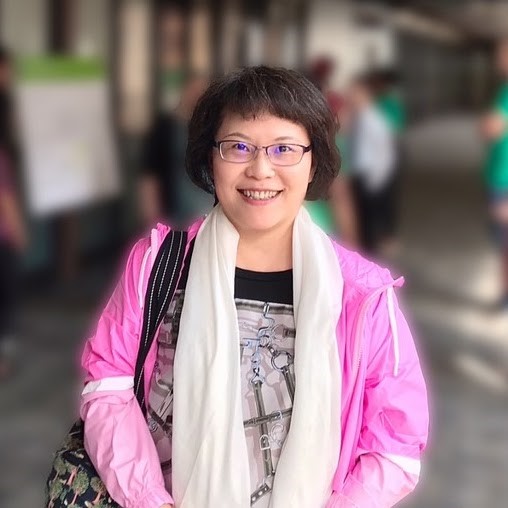
Yu-Ju Lan
Research Chair Professor of Chinese as a Second Language at National Taiwan Normal University
Dr. Yu-Ju Lan is a Research Chair Professor in the Department of Chinese as a Second Language at National Taiwan Normal University. She is currently the Editor-in-Chief of Educational Technology & Society, Associate Editor of Language Learning & Technology, and on the editorial board of Ampersand. She was awarded the Outstanding Research Award by the Ministry of Science and Technology (MOST), Taiwan, in 2022. Dr. Lan is the founding president of the Taiwan Pedagogy and Practice in TELL Association. Her research interests include technology-enhanced foreign language learning, virtual reality, AI, and online synchronous teacher training.
Speaker 2
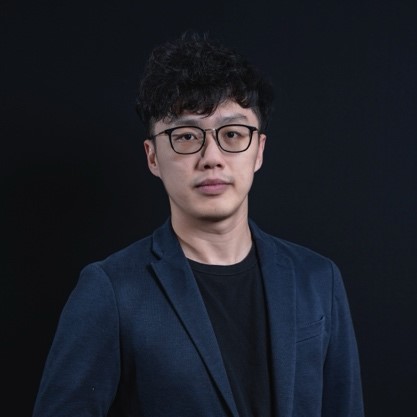
Pei-Yu Cheng
Assistant Professor of Information Management at Tamkang University, Taiwan
Dr. Pei-Yu Cheng currently serves as an Assistant Professor in the Department of Information Management at Tamkang University, dedicating his efforts to diverse research areas, including educational technology, the application of emerging technologies in education, big data analysis, artificial intelligence, and the integration of sensing technology into teaching. Over the past five years, he has published eight academic papers on educational technology in SSCI/SCI journals. During his tenure at Tamkang University, Dr. Cheng has been granted funding by the National Science and Technology Council (NSTC) and the Ministry of Education (MOE) and has engaged in several industry-academic collaboration projects.
Speaker 3

Yi-ju (Ariel) Wu
Associate professor in Department of English Instruction at University of Taipei, Taiwan
Yi-ju (Ariel) Wu is an associate professor in Department of English Instruction at University of Taipei, Taiwan. Her research areas include Virtual Reality, teacher education, TPACK, corpus linguistics, L2 writing, and English for Specific Purposes. She has published in leading international journals such as Language Learning & Technology and Educational Technology & Society. She has been serving as a teacher educator of the primary school English teacher education program by Education Department of Taipei City Government. Since 2021, she has involved in in-service professional development programs initiated by Education Departments of Taipei City Government and New Taipei City Government as an instructor and mentor for bilingual teachers.
Invited Panel 3 [Panel in Chinese]
Speech Title
We Share Everything! — Focusing on Affordances and Restrictions of “Sharing” Language and Culture Information on Social Media as “Teaching”
This panel aims to explore a unique conception of language and cultural teaching in the context of social media, widely known as “sharing”. Sharing is not too difficult to identify as a key feature of social media practice. However, there has not been systemic exploration in language education and thus warrants a panel to start exploring the implication of taking language teaching as “sharing.” The panel gathers TESOL and Chinese teaching researchers, practitioners, and social media influencers. Drawing on the ecological perspective, we use what each of us have been doing and researching social media language/culture teaching as the starting point and focus on the implication of “sharing.” We will explore how language teaching on social media must be understood as being hybrid: It follows conventional sense of language teaching, but at the same time it also challenges it, given the affordance and restrictions of social media ecology.
社群網路上「分享」語言文化知識當「教學」: 咦,這是甚麼底層運作概念?
這個panel的目的是一起來探索在社群媒體上教語言與文化的底層運作概念,這個概念他們都叫「分享」:「我沒有要教觀眾什麼,我只是在分享!」 「分享」當然沒什麼奇怪,但是把這個概念當作教學來思考的時候可以衍伸出來很多有趣的底層運作原理。我們這個panel就是想來探索一下隨著「分享」的概念帶來的社群網路另類語言教學。參與討論的除了各位觀眾你,還有喜歡思考電腦與語言教學互動關係的學者、有正在進行相關研究的大學老師與博士生、也有實際在社群媒體「分享」的實務工作者。我們從各自研究或實務經驗之簡短報告出發,想跟與會的大家討論「分享」的概念。你覺得社群媒體上的語言教學是不是一種兩棲狀態? 一方面很容易遵循傳統教學方式方法思考模式, 另一方面它又同時挑戰了所謂的傳統。那,藉著生態理論的啟發,我們來想想到底是為什麼要遵循?又到底挑戰了什麼?還有甚麼「不為人知」(網路新聞用語)的底層運作概念? 歡迎你帶杯咖啡進來,跟我們一起聊聊社群媒體中的另類語言文化教學生態。
與談人 1
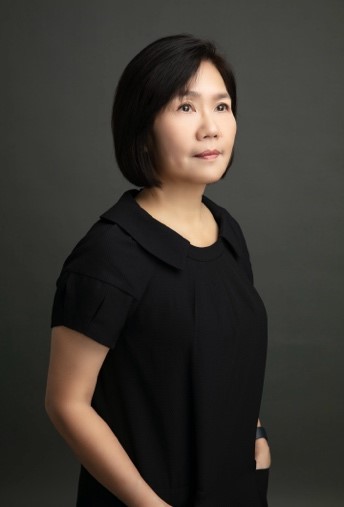
招靜琪
國立政治大學英國語文學系 教授
在印第安納大學拿到博士學位,語言教育+教育科技一直都是我思考的方向,追尋的疑問是怎麼讓CALL的研究有深度起來。多年的努力,帶學生寫了應該有上百篇碩博士論文,也在SSCI期刊陸續發表了都說很難發的質性研究文章之後,ㄟ,有感覺了! 於是,繼續拉著學生在自媒體、教師身分認同、正式+非正式語言教學領域裡,玩研究。
與談人 2

方瑾
國立政治大學華語文教學碩博士學位學程 助理教授
國立台灣師範大學華語教學研究所第九屆碩士畢業,國立政治大學華語文教學博碩士學位學程博士。從事第一線華語教學工作二十年,當過三年的中文教學YouTuber,目前的研究興趣在自媒體環境中文教學。
與談人 3
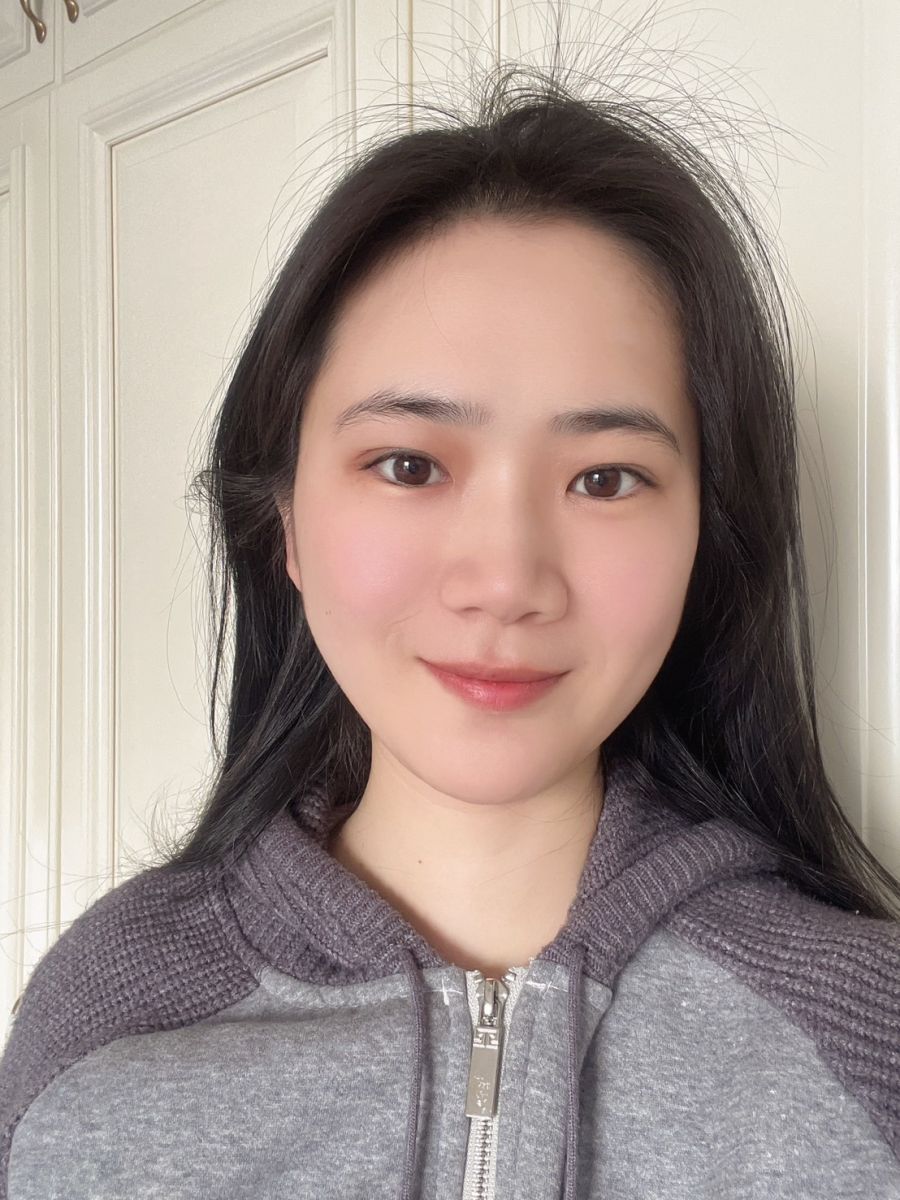
江韻
國立政治大學英文系 博士生/福建師範大學協和學院 英語教師
從事英語教學10年,目前就讀於國立政治大學英國語文學系英語教學博士班。目前撰寫的博士畢業論文在硏究英語教師如何在自媒體環境中組織教學活動,建立教師身份。硏究中的受訪者的教學環境與傳統的課堂截然不同,他們的故事對教學有滿多新的啓發。
與談人 4
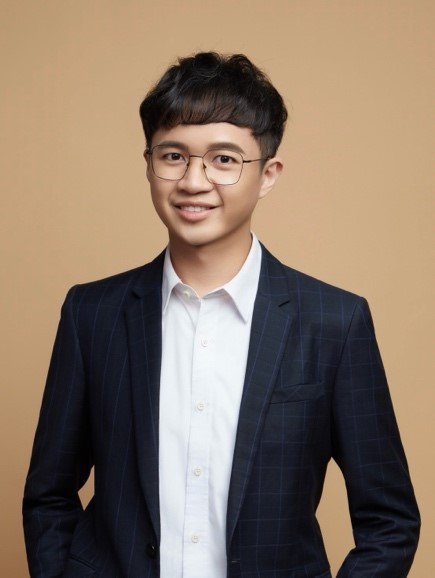
李奇隆
字神帝國英語學院 GRE 教師
在印第安納大學取得 TESOL & Applied Linguistics 碩士後,以「李碩」這藝名踏入了補教圈,也以這名字創了已破萬追蹤的 Instagram 英語教學帳號 (@shuoleegre)。「碩」有「廣博」、「廣大」的意思,我希望在教學歷程中,與學生一同鑽研知識,達到學識上的廣博,也期許自己開創出新的英語教學樣貌,在自媒體上分享知識、展現創意,更發揮廣大無邊的影響力。
